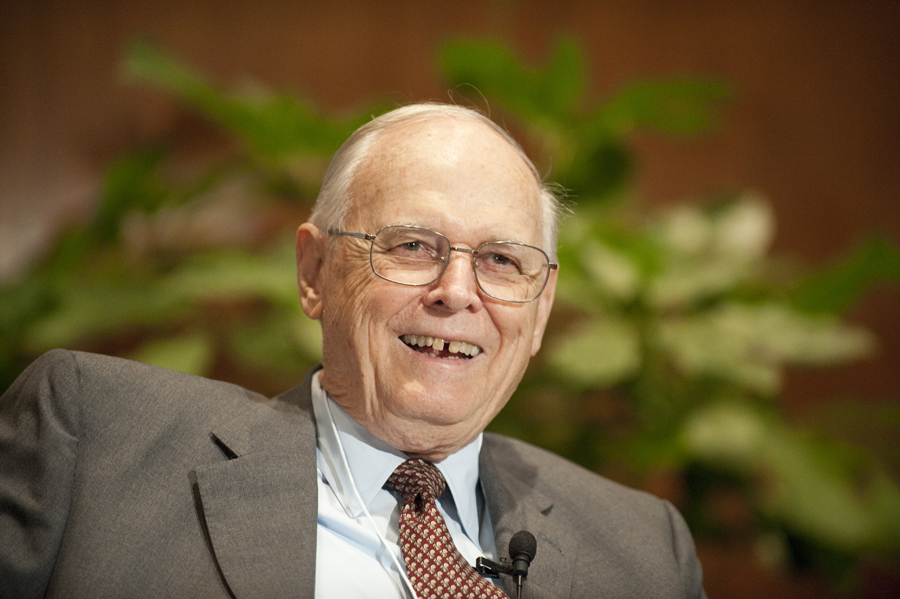I recently had the opportunity to speak at length with Carter administration Secretary of Labor Ray Marshall. Now an emeritus professor at the University of Texas, Marshall, 87, remains interested in immigration policy and active at the Economic Policy Institute, the liberal think tank that he helped found in 1986.
In 2011, EPI published Marshall's book, Value-Added Immigration: Lessons for the United States from Canada, Australia, and the United Kingdom. He sets the book's tone in the preface, writing: "The United States does not have a guiding national economic policy for the flow of foreign workers, with the predictable outcome of an immigration system that depresses wages and working conditions and accelerates growing income inequalities."
Here are some excerpts from my conversation with Secretary Marshall on a variety of immigration-related subjects.

On the H-1B visa program: "One of the best con jobs ever done on the American public and political systems. The supporters argue that we have a shortage of college-educated workers. Well, there's no evidence of that in the numbers. ... If Congress had been making decisions on the basis of objective information [when it mandated the H-1B program] it would have seen that if you have a shortage of college-educated workers, their wages would not have been declining. ... H-1B pays below market rate. If you've got H-1B workers, you don't have to do training or pay good wages."
On Facebook's Mark Zuckerberg, a major user and promoter of H-1B: "Mark Zuckerberg thinks younger workers are smarter than older workers, which shows a bias against older workers. I think that industry has a bias against older workers. They use the immigration process to cover up their discrimination."
On the proposal to staple a green card to the diplomas of graduates in tech fields: "That's not a very good idea at all, unless you can show that you need those workers. Anyone who knows anything about immigration could predict the logical outcome of that. What you would get is a lot of fly-by-night educational institutions being set up ... and not necessarily preparing any of those workers while they charge high tuition. Being able to get into the United States is a very valuable right. And people are willing to pay a lot of money to do it."
On the failure of the Immigration Reform and Control Act of 1986: "It was pretty clear that you were inviting fraud if you allowed 22 different identifiers any one of which is easily counterfeited. And then you put the employer in charge of verifying those identifiers. You talk about the fox being in charge of the hen house. The employers didn't have the will or the means to do that."
On IRCA's effect on the labor market: "It created a huge influx of unauthorized immigrants."
